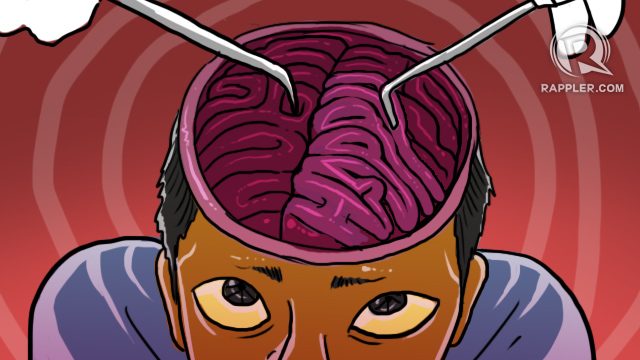SUMMARY
This is AI generated summarization, which may have errors. For context, always refer to the full article.

Three hundred sixty-six million (366,000,000) – that is how many Google entries the internet can offer on “happiness” as of this writing. That is the population of the United States and South Korea combined. But I think each of us on the planet has her or his own take on what happiness is – that means about 7 billion definitions.
No one can perfectly define happiness but we know it when we are happy. We know that happiness is not merely the absence of negative feelings but somewhat more complex than that. We see parts of our own happy selves when others express to us what makes them happy. We saunter in our lives trying to cultivate happy moments for ourselves. We also assume others want it too so we help give our family, friends and even strangers chances to be happy.
Even commerce associates their products and services with what makes us happy knowing they have a better chance of selling us one thing, if not more. But amid all the literature, the tweets, posts, websites and blogs that dwell on “happiness” and all its derivatives, what could be that one common thing we all share about happiness?
A new study thinks it is that nook in the brain that seems to always be active in people who experience “subjective happiness” (as opposed to just a happy feeling). Happiness is not merely pleasure. Otherwise, bingeing on food, drugs or the like, would have been the sure routes to it. But we know that instead of happiness, those lead to abuse.
Previous psychological studies have shown that “subjective happiness” is not simply being pleased with the moment but having a rich stir-fry of positive and emotional states tossed in the wok of awareness that one’s life is worthwhile. This recent study supports that but the new thing is it discovered the “location” and “buzz” of subjective happiness. The address is the precuneus, located roughly beneath what Pinoys call the bumbunan and it has more gray matter in people who are more subjectively happy.
The precuneus is apparently the hungriest part of the brain when it comes to the burning of glucose. It is known to be involved when we think about our current experiences and make references to our past and also our future plans. It also figures in patients just coming out of anesthesia. In other words, it is like some kind of processor for your own internal blog. It gets to dip into your triumphs and foibles as well as your dreams for the future with a running awareness of how you think they all add up in the sum of your life.
The researchers think knowing that they might have just “located” happiness in the brain could help us understand it more knowing that when we are happy, our chances for success and good health are also looking up. This is also useful because we know from studies that income could only add so much happiness beyond a certain level of money at your disposal.
Given what we now know about what the precuneus does- that it is some kind of Socratic committee in your head, feeling and weighing all sorts of information coming at your life across both space and time to give us a feeling of how happy we really are – we are now more solid about the idea that no one thing – including money – can make your world go round.
Those who did the study are aware that “subjective happiness” could mean different things to different cultures (the current study was done with Japanese subjects). So they think it would be good to further this study by coming up with a tailored “happiness index” for different cultures to see if it would point to the same seat of happiness in the brain as this study did.
I think we should also do this happiness study across different demographics. I remember a study a few years ago that found that couples without children are “happier” than those with children. However, a study last year published in the Proceedings of the National Academy of Sciences found very little difference in the happiness scores of “child-free couples” and parents. They think it is because they should not be comparable to start with since each kind of choice brings a different trajectory of highs and lows.
I know, I know. Some of you might be saying you don’t care where your happiness lies as long as you exist in it, even if not always, in turns. We don’t care whether it is in our precuneus, in the bottom of our hypothalamus or in the sidelines of our epiglottis. In fact, most of us don’t care about what our biology has to do with happiness.
But then, why shouldn’t we care? We are creatures who yearn to understand the whys and hows of our own personal experiences and that includes what happens to our brains when we are happy.
Science is now giving us more insight into what we all used to refer to, as being “just in our heads” or “hearts”, and therefore totally incomprehensible. Picture this: You are sitting in your favorite spot in the morning, across the ones you love, and despite all the mess of life, literal and metaphorical, you still find yourself saying, “life is goooood”. That is happiness baked to a crisp sprinkling your whole soulful bowl of a being. It is apparently the precuneus that does that “wizardry”. Thank goodness for that hungry beast. – Rappler.com
Add a comment
How does this make you feel?
There are no comments yet. Add your comment to start the conversation.